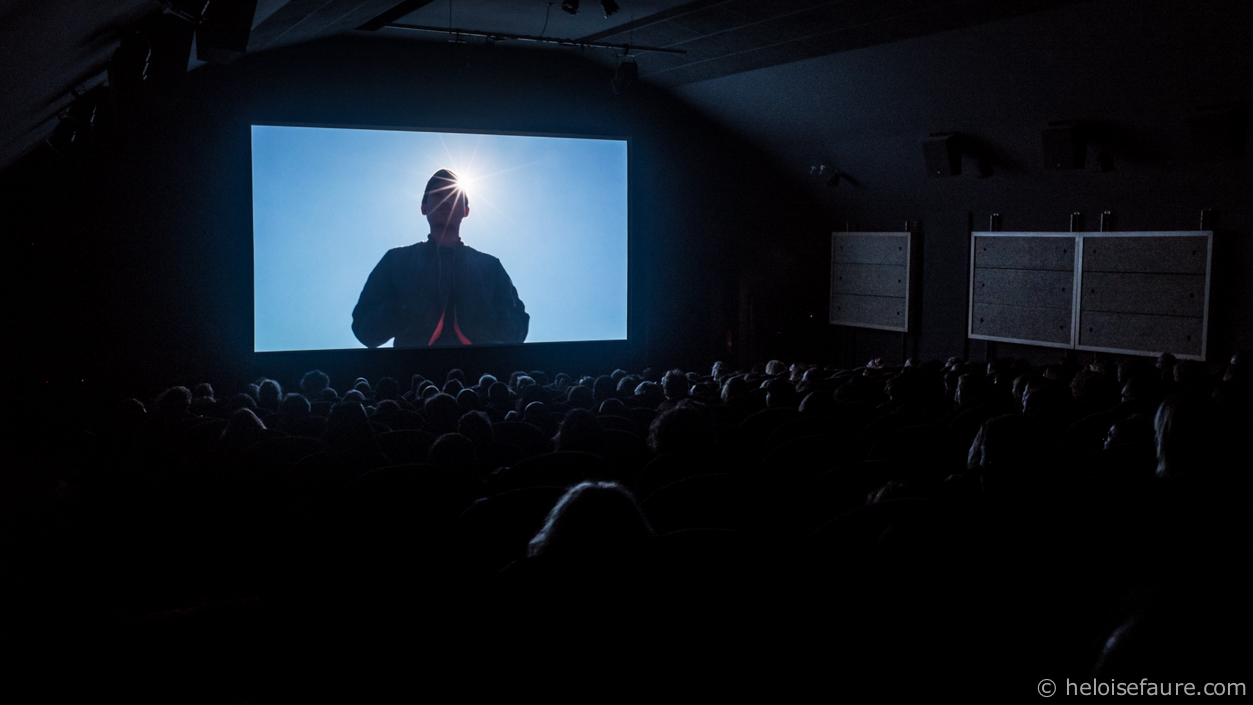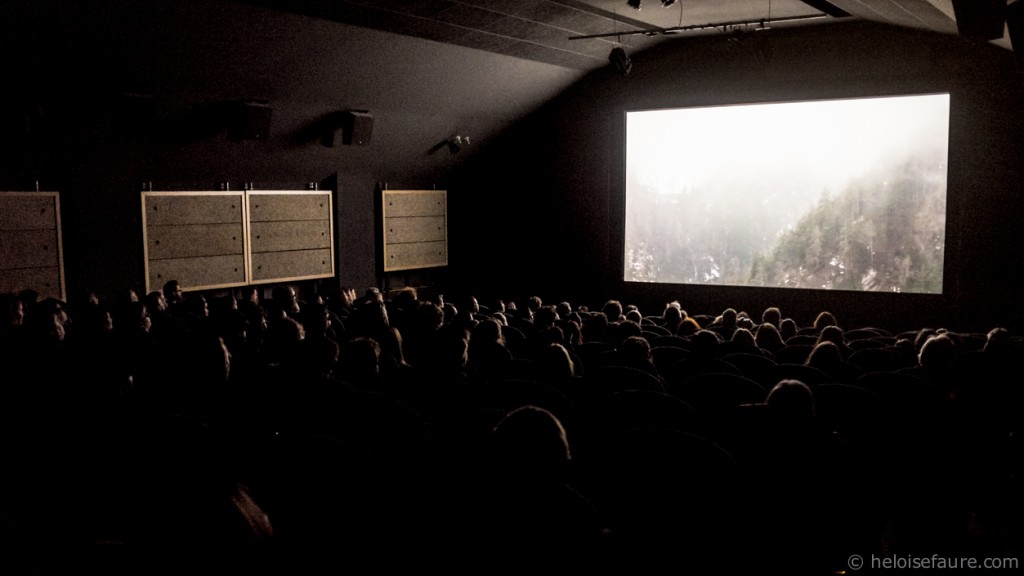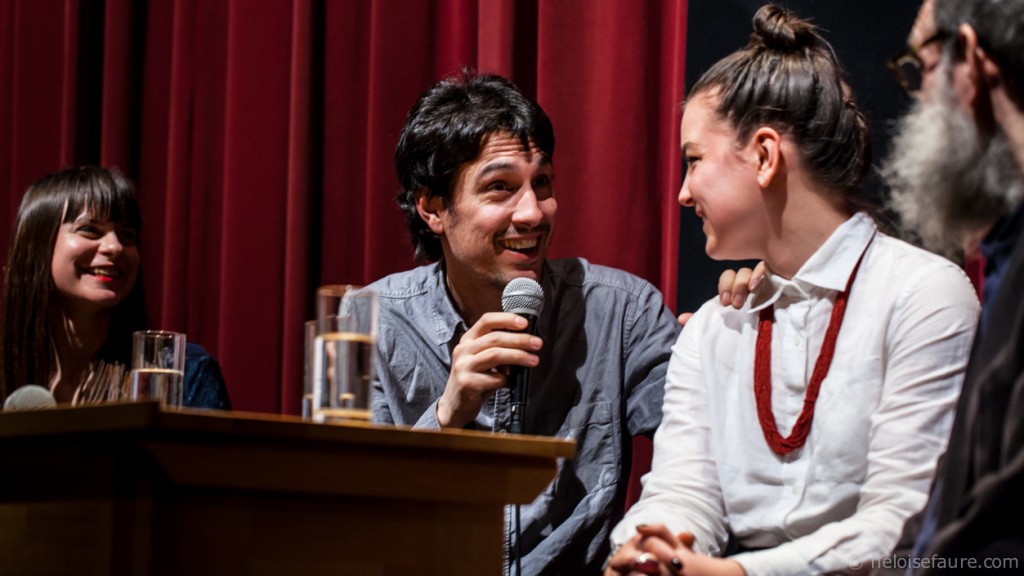Mixing is Listening #2/16
Mixing is Listening: What was said at Berlin Critics’ Week 2016
Discussing cinema, its aesthetics and politics, is a very common and a very rare thing at once: We do it every day, and more often than not, we feel we’ve heard it all before. To cut through the slack and illuminate the resounding ideas that were raised at the second edition of Berlin Critics’ Week we opted to rearrange the vast material of the debates that followed our seven screenings. To look for patterns and stories arising from the seven nights. As contemporary music’s gift may have been to acknowledge mixing as an artform, we give you a mix/collage of our discussions, in the hopes for it to be more than the sum of its parts.
Meaning as a Trap
Frédéric Jaeger: I think when we talk about the erotic nature, the seduction, there is also something to be said about what is not seen. About the things that are kept from us, the gratification that never comes. That’s also a very important part of the work. There is something that we are longing for and we are never getting it.
Kiva Reardon: The way I think of aura, the subject of this panel, is by referring to Walter Benjamin. Aura requires an object and that object has to have lived through a specific moment and certain specificity that roots it in a moment in time and specific ideas. Once that object is either destroyed or abstracted through reproduction, as we have it now by the stamps, the posters, and her museum that changes the nature of aura. I think that’s when you shift in the questions of mysticism or broader ideas and concepts, and so even in trying to destroy her body and remove it and make it inaccessible to the people, that actually just ended up feeding her entire mythology as well because there was no body anymore to root the story.
Igor Minaev: This film’s love story is made up of a story, of which reflections can be found in the [previously unreleased] films, indirectly. And that is what is so telling, and what thoroughly touches the son. Because it becomes enigmatic: He discovers everything, but as reflections of the past.
Pamela Biénzobas: Let us think of Osama Bin Laden: There are bodies that you have to remove from existence, because if they are there so that we can find them, their physical existence as objects would become a shrine, so that is dangerous in itself. And in that sense, I found it so interesting that Pablo [Agüero] would tackle this larger-than-life, larger-than-death, larger-than-everything symbol that is Evita Perón, through the disappearance of her body. Because precisely in that period, her missing body approaches a status that it didn’t have from the beginning: that of so many others in that country, the status of a disappeared body. Of course she was not killed, but once her enemies came to power her body is partly equivalent to the bodies of all those other enemies that were killed. It must be removed from sight.
Pablo Agüero: I think if the film were perfect, it could do without the body.
Frédéric Jaeger: We are beings who are constantly looking for meaning. And meaning is also intellectual, is also in the brain, in society, and in the context we come from. You use that. When you talk about it, you seem to be pretty much in sync with the pure experience. As if you could subtract everything else. And I would like to believe that, but sometimes, I can’t.
Phillippe Grandrieux: The question is not the same when you are watching and when you are making movies. […] The question of intentionality is quite different.
Frédéric Jaeger: There is the Eiffel Tower [in Despite the Night], just to name one example. There are those clichés […]
Marcus Stiglegger: But isn’t that a trap? In most of Philippe Grandrieux’s films, and also in this one, there are elements of genre cinema. It could be called a melodrama in a way. Sombre could be considered a serial killer thriller. But that doesn’t work. It is part of the seduction. These psychoanalytical elements as well, father-daughter relationships and so on. They offer no solution for anything in the film. It probably is an element that is seductive, because we are used to it. We are used to cinematic grammar, to plots. I saw it differently, not as a cliché.
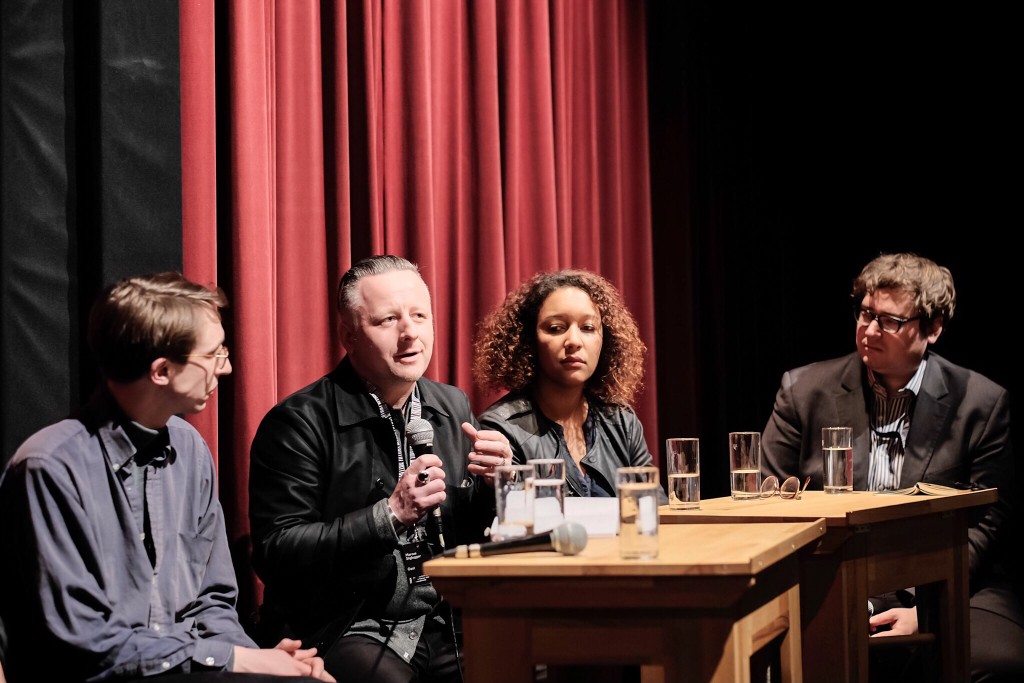
Frédéric Jaeger: What about the narrative side? Despite the Night is a bit different compared to your previous films. There is more of a structure, there is a desire set from the beginning that goes through different stages, a story. I am wondering, is that a trap as well?
Marcus Stiglegger: I think the narrative is this residual element that gives you security as a viewer. In this film it is stronger than in the others. For me, it is some kind of trap as well, I tried to ignore it in the first half of the film, but then I let it happen. For me, Philippe Grandrieux’s films are what I call performative cinema. Performance is always a “live” situation, but the film happens, in the moment. You grasp it in the moment.
Philippe Grandrieux: It is not about making narrative movies or non-narrative movies, or experimental movies. It is about making movies, making cinema. To make strong movies you are completely inside of. And to give your life for that. Maybe it is a little pathétique, but it is deeply true. It changes everything for the audience.
Frédéric Jaeger: Was mich sehr interessiert an eurem Film ist die Provokation der Wirklichkeit. Es gibt wichtige Elemente, die dokumentarisch oder semi-dokumentarisch sind. In dem Sinne, dass ihr guckt: Was passiert mit den beiden Schauspielerinnen, die auch etwas gemeinsam haben mit ihren Figuren, etwas von sich einbringen. Ihr habt geschrieben, dass ihr die Dialoge gemeinsam mit ihnen entwickelt habt. Es geht darum, eine Setzung vorzunehmen und dann zu schauen, was daraus entspringt. Das wäre eine erste Verbindung für mich zum Thema des Zeitgeistes. Zu gucken: Was ist in der jeweiligen Zeit, und was kommt aus ihr heraus, wenn man eine Setzung vollzieht.
Marita Neher: Man kann es ja auch so sehen, dass diese beiden Frauen den Sicherheitsabstand verringert haben. […] Sich aus einer Komfortzone heraus zu bewegen und zu sehen: Was passiert mit mir dort? In dem Teil, den wir geprobt haben – die drei Wochen, in denen wir die Dialoge entwickelt haben – ging es darum, dass eine Aktivistin auf eine Journalistin trifft. Jede mit eigenem Hintergrund und Interesse. Die gehen mit einer bestimmten Vorstellung da hin, vor allem die Journalistin. Dort wird sie orientierungslos. Je länger sie alleine unterwegs ist, desto mehr verliert sie aus dem Blick, um was es ihr eigentlich geht. Und das finde ich super, als eine Realität, die eben auch einfach passiert.
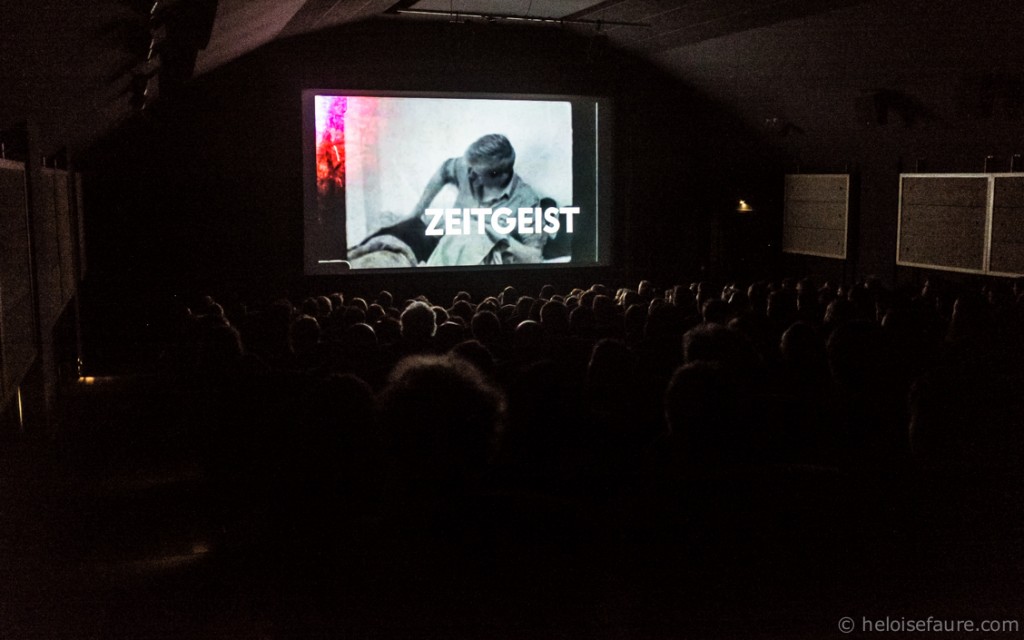
Lewis Klahr: I do see myself as a storyteller. But I don’t see stories as limited to plot. There are a lot of other things that occur; there are a lot of other things I want to describe besides just the stories. Lethe, the last [of 12 short films in Sixty Six], is the most explicitly narrative, this one you can actually follow. But the rest of them play off narrative language and then you need to find yourself inside them as the audience. I am leaving it open so you can tell yourself stories. There is my intention, there is my definitive version for myself, but that is not necessarily what you will experience. And it is not important to me that you experience that.
• • •
Redaktion: Raphael Flechtner, Frédéric Jaeger, Maximilan Speck, Lisa Weber, Irene Wildberger.
Find the full discussions on our Youtube channel!

